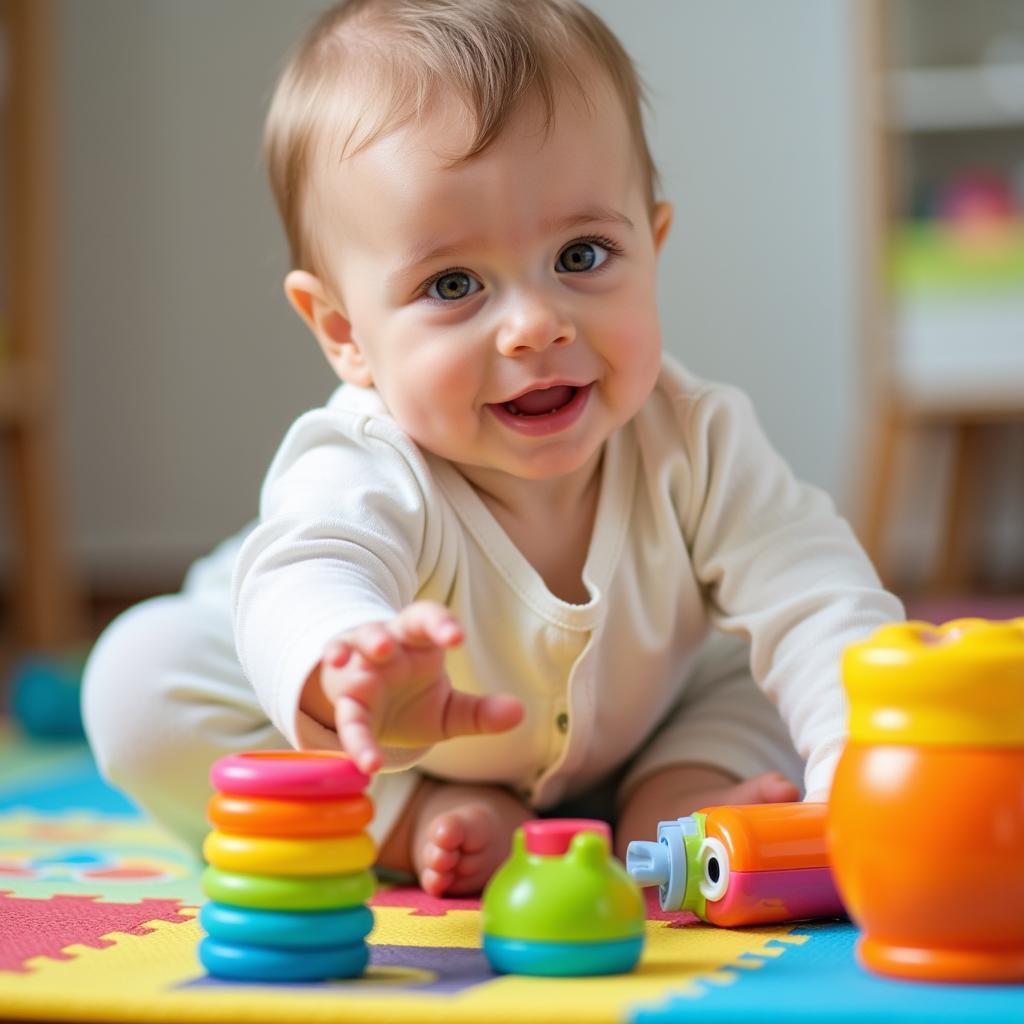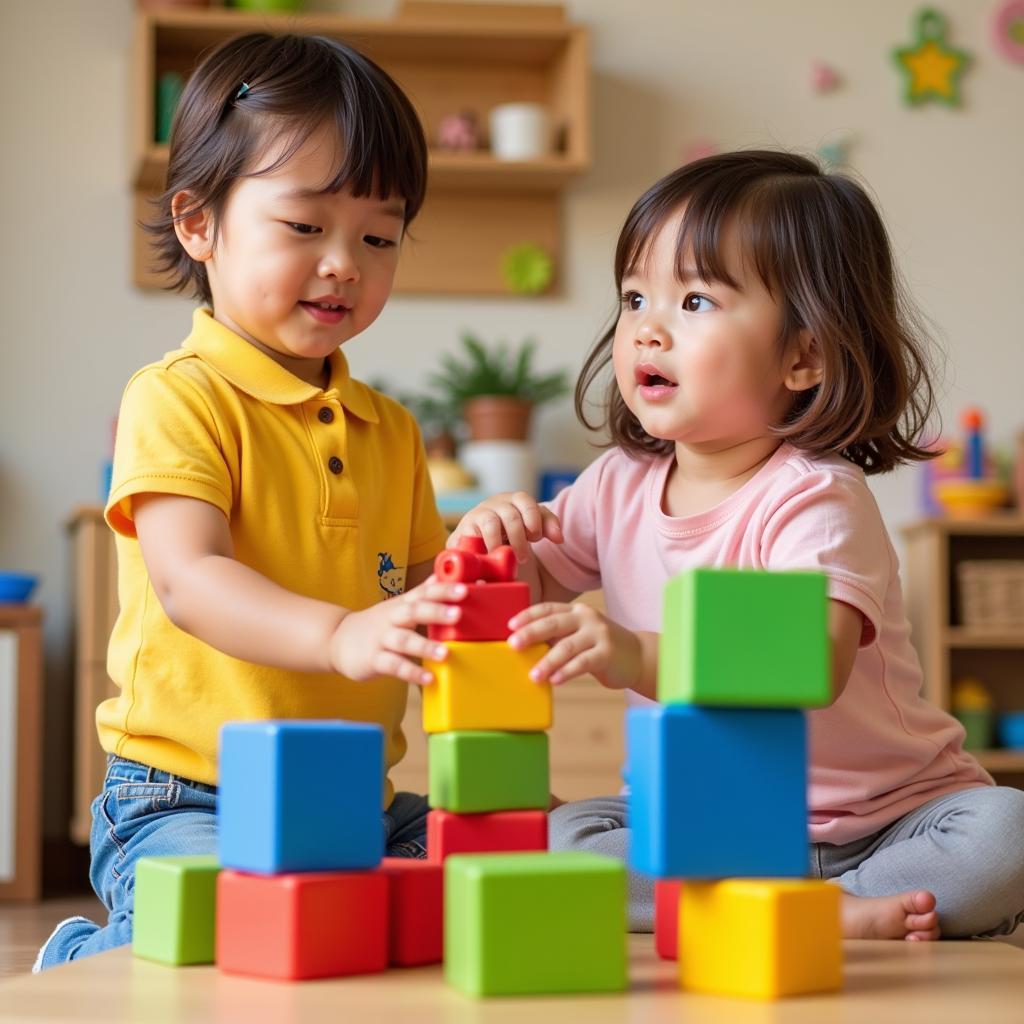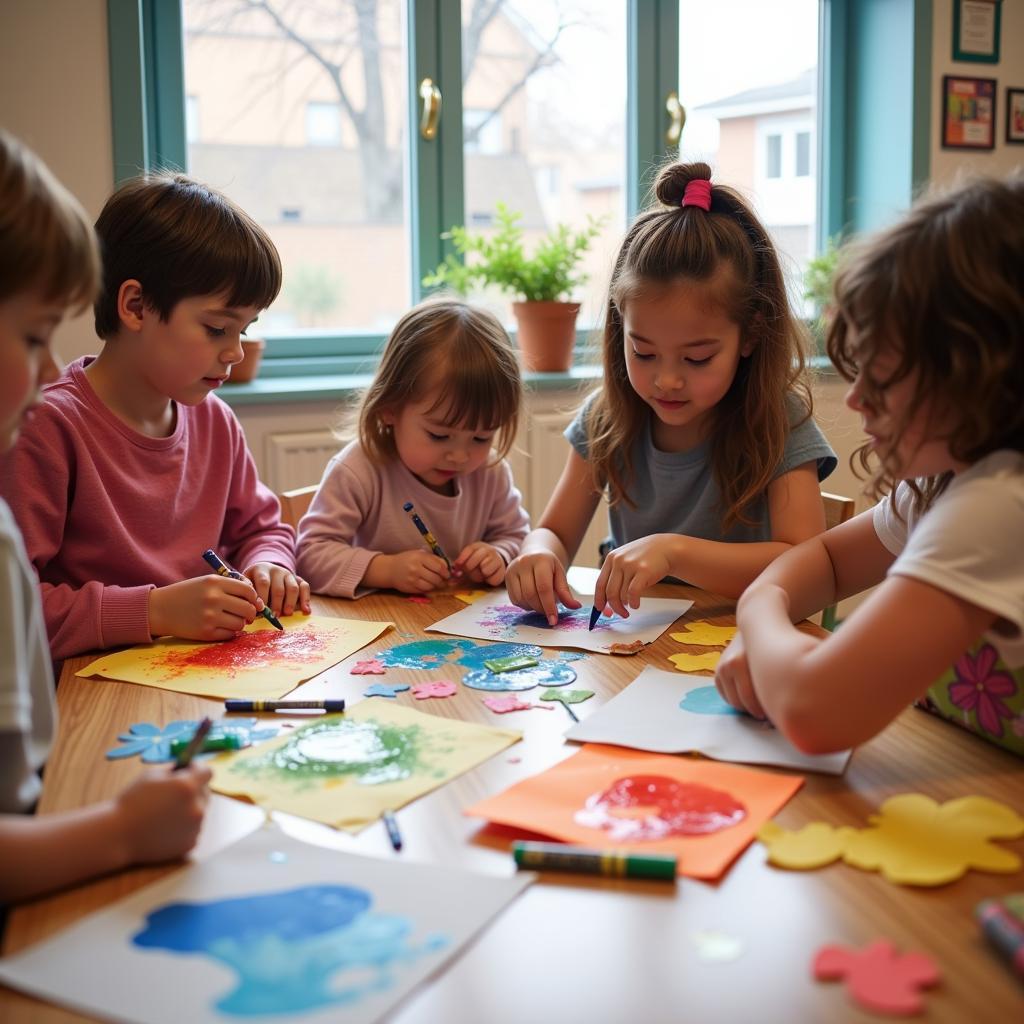Choosing the right daycare for your little one is a significant decision. It’s about finding a nurturing environment where your child can learn, grow, and thrive. A key aspect of evaluating daycare options involves understanding developmental milestones. These milestones serve as benchmarks, helping parents and caregivers track a child’s progress in various areas like language, motor skills, social-emotional development, and cognitive abilities. This guide delves into the importance of milestones in daycare, offering you valuable insights into what to expect at different age groups.
Why Are Milestones Important in Daycare?
Milestones are much more than just checklists. They provide a framework for understanding a child’s developmental journey and tailoring care to their individual needs.
- Early Identification of Potential Concerns: By closely monitoring a child’s progress against established milestones, daycare providers can identify potential developmental delays early on. Early intervention is crucial in addressing any concerns effectively.
- Personalized Learning and Development: Each child develops at their own pace. Milestones help daycare providers create individualized learning plans and activities that cater to each child’s unique strengths and areas for growth.
- Effective Communication with Parents: Daycare providers use milestones to communicate a child’s progress to parents in a clear and informative way. This open dialogue fosters trust and ensures parents are actively involved in their child’s development.
Key Developmental Milestones by Age Group
While every child is unique, understanding typical developmental milestones can provide helpful guidance. Here’s a glimpse into what to expect at various stages:
Infants (6 Weeks to 12 Months)
- Physical: Rolling over, sitting up with support, crawling, pulling themselves up to stand.
- Cognitive: Reaching for objects, putting things in their mouths, exploring objects with their hands and eyes.
- Language: Babbling, responding to their name, understanding simple words like “no” and “bye-bye.”
- Social-Emotional: Smiling, cooing, interacting with caregivers, showing stranger anxiety.
 Infant Exploring Toys
Infant Exploring Toys
Toddlers (1-3 Years)
- Physical: Walking independently, running, climbing stairs, scribbling, stacking blocks.
- Cognitive: Sorting objects by shape and color, engaging in pretend play, understanding cause and effect.
- Language: Using simple sentences, following simple instructions, pointing to body parts.
- Social-Emotional: Playing alongside other children, showing affection, testing boundaries.
 Toddlers Building Blocks
Toddlers Building Blocks
Preschoolers (3-5 Years)
- Physical: Hopping on one foot, riding a tricycle, using scissors, drawing recognizable shapes.
- Cognitive: Solving simple puzzles, understanding concepts like counting and time, engaging in imaginative play.
- Language: Speaking in complete sentences, telling stories, following multi-step instructions.
- Social-Emotional: Sharing with others, expressing emotions, cooperating in group activities.
 Preschoolers Engaging in Art Project
Preschoolers Engaging in Art Project
Partnering with Your Daycare Provider
Remember, milestones are guidelines, not strict timelines. Open communication with your child’s daycare providers is crucial. Share any concerns you have, celebrate your child’s achievements, and work together to support their developmental journey.
Conclusion
Understanding milestones in daycare empowers you to make informed decisions about your child’s care. By selecting a daycare that prioritizes developmental milestones, you are providing your child with a strong foundation for future learning and growth. Remember, every child develops at their own pace, and celebrating their individual achievements is paramount.





